We are developing the social individualist meta-context for the future. From the very serious to the extremely frivolous... lets see what is on the mind of the Samizdata people.
Samizdata, derived from Samizdat /n. - a system of clandestine publication of banned literature in the USSR [Russ.,= self-publishing house]
|
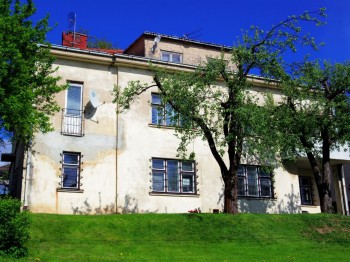
I visited the above house in Kaunas, Lithuania last month. In 1940, this house was the Japanese consulate. Kaunas functioned as the capital city of Lithuania prior to the Second World War. The Lithuanians considered Vilnius to be their rightful capital, but it was masquerading as the Polish city of Wilno at the time. Upon the German occupation of Western Poland and the Soviet occupation of Eastern Poland in late 1939, many (both Polish and Lithuanian) Jews were trapped in Lithuania and clearly in great danger, but were unable to gain exit visas to leave the Soviet Union (or travel across it by the Trans-Siberian railway) unless they had visas to go somewhere else. There were Japanese government rules stating that transit visas could be issued to Japan, but only if the applicant had plans to go somewhere else after Japan, and also that he had adequate financial resources.
Seeing the desperation of the situation, and against orders, Japanese consul Chiune Sugihara issued Japanese transit visas to anyone who asked. (In the book Bloodlands historian Timothy Snyder – who clearly finds Sugihara as fascinating a figure as I do – makes it clear that Sugihara was a Japanese spy as well as a Japanese consul, and his job was to keep track of Soviet troop movements for the Japanese government). During September 1940 he spent something like 20 hours a day writing out visas. When the consulate was closed and he had to leave, he was followed by a crowd to the railway station. As his train left, he was still throwing blank visas with his seal and signature on them to a crowd of desperate people. In total, he wrote something like 3000 visas, and as dependent family members could travel on the same visa as the principal person it was written for, those visas covered several times that number of people.
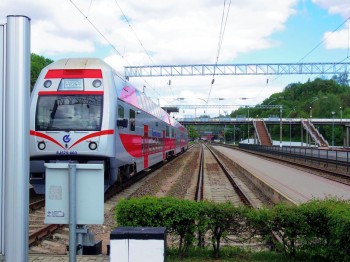 Kaunas railway station today. Kaunas railway station today.
Upon receiving these visas, Jews were able to travel on the Trans-Siberian railway to Vladivostok and then go by ship to Japan. They then dispersed to various places, but many were deported to Shanghai when the tripartite pact with Germany was signed shortly afterwards. Shanghai was also under Japanese occupation, and there these people spent time in the Shanghai ghetto – Restricted Sector for Stateless Refugees – where they stayed until Shanghai was liberated by the Americans in 1945. I visited the remnants of the Shanghai ghetto in 2006, and wrote about it at the time. Although this was crowded and at times squalid, it was a place of relative safety. The Japanese behaved monstrously towards certain other groups, but they had nothing against Jews, and did not turn the Jews in Shanghai over to the Germans despite German requests. Rather cleverly, Jewish leaders in Shanghai played upon Japanese mistrust of their German allies. Upon being asked by a Japanese governor why the Germans hated the Jews so much, rabbi Shimon Sholom Kalish replied “They hate us because we are short and dark haired”.
Most Jews who got to Shanghai survived, and then emigrated to Israel, Australia, the US and other places after 1945. Estimates of the number of lives saved by Sugihara go as high as 10,000, although estimates of about 6,000 seem more common.
Half of the building in Kaunas is now a museum to Sugihara. I wanted to see this – it was why I went to Kaunas. The other people in the museum when I went there were a busload of Japanese tourists. Almost everyone who had signed the guest book had done so in Japanese, too. I didn’t see any Lithuanians or many other Europeans, which is a shame given this extraordinary story.
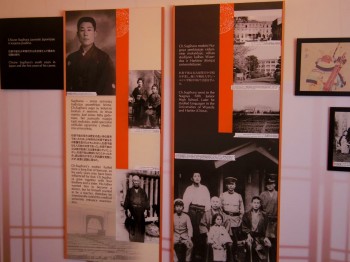
It’s an exceptionally good thing that the museum is there, but I did find the tone of the museum to be slightly curious. The museum did seem to be going out of its way to present the Japanese in general in the best possible light overall, rather than simply telling the story of Sugihara. That Sugihara was acting against orders was mentioned but not emphasised, and much was made of Jews who reached Japan being treated well, but not much was said about where they went after the Japanese alliance with Germany intensified and they were deported from Japan. The truth – the Shanghai ghetto mentioned above – doesn’t actually reflect too badly on the Japanese, but it is rather unfortunately connected to other things that do reflect badly on the Japanese. It is impossible to praise Sugihara himself too much – the man saved the lives of 6,000 or more people just out of basic human decency – but does this reflect well on Japan as a whole? That is harder to say. As is the case with other various people who did similar things, his story remained obscure for many years. His career with the Japanese foreign service ended after the war for reasons that may or may not have had to do with disobeying orders in Lithuania.
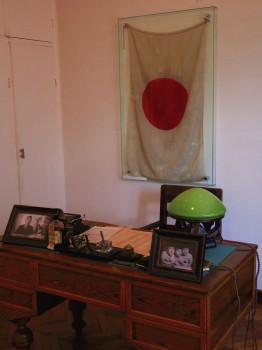
Eventually, Sugihara’s story became widely known, and he was later honoured by Yad Vashem, the state of Israel, the state of Japan and the state of Lithuania, but this took a long time. As it did with Paul Grüninger, Oskar Schindler, and others.
Often, when walking near Old Kent Road close to my home in Southwark, I have seen this peculiar sight.
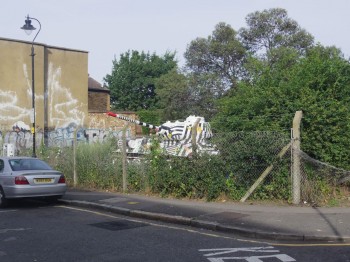
Yes, it appears to be a tank. London is London though. Our glorious city contains a lot of weird shit. Is it a war memorial? I doubt it. Is it a decoration in a public park? Again, I doubt it. The land is overgrown and is fenced off, although the fence has long ceased to be effective. Is it an art project? Possibly. Certainly the paint and graffiti on the tank changes from time to time, but as to whether this is planned or simply something done by the nearby and bored, once again who knows? As to what type of tank it is, my knowledge of military hardware is sadly lacking.
Half the Samizdata commentariat (and certainly this blog’s glorious leader) is no doubt jumping up and down and saying “It’s a T-34, you idiot”. As it happens, I discovered this when looking at Google Maps yesterday. The tank is in fact shown on the map, at the intersection of Mandela Way and Page’s Walk in London SE1. (Places in the UK that were ruled by Labour local governments in the 1980s are full of streets, council buildings, and lord knows what else named after Nelson Mandela, as this was considered a good way to annoy Margaret Thatcher).
Curiouser and curiouser. A T-34 is a Soviet tank. What the hell is it doing on an overgrown piece of land in Southwark? Thankfully we have the internet, which tells us one of those stories that is probably not entirely true but should be. Reputedly a man named Russell Gray, the owner of the now overgrown block of land, wanted to build a house on it. This seems perfectly reasonable to me. Although the block is fairly small and a peculiar shape, it is certainly big enough for a small house. As the location is no more than a 15 minute commute to the financial jobs in the City of London, any house there would be of considerable value. However, when Mr Gray applied to Southwark Council for planning permission, it was denied. In frustration he submitted another planning application requesting permission to put a tank on the site. This was granted. He then obtained a surplus Soviet T-34 and this has been on the site ever since. Apparently the turret was originally pointed in the precise direction of of Southwark Council’s offices and the tank was given the nickname “Stompie” after an ANC activist murdered by thugs loyal to Winnie Mandela after they suspected him of being an informer to the apartheid South African government in 1988.
Where does one obtain a surplus Soviet T-34, exactly? It was imported from Czechoslovakia as a prop in the 1995 film of Shakespeare’s Richard III, starring Ian McKellan and a large ensemble of Britain’s other finest actors. Prior to that it may or may not have been used by the Soviets in putting down the Prague Spring in 1968. In any event, Mr Gray was able to buy it cheaply after the film-makers had finished with it.
Er, come again? Didn’t Richard III die in 1485 before spending the next five hundred years beneath a car-park in Leicester? Were there a lot of T-34s involved in the Wars of the Roses?
Ah, this version was set in a fictionalised 1930s England. Soviet tanks that did not go into production until the 1940s were apparently a better fit in that world.
As I said, London contains some weird shit. I can’t imagine living anywhere else.
The least dangerous sport at the Winter Olympics is Biathlon. This is also the only sport at those games that involves the use of firearms.
(HT to the Australian Liberal Democrats for noticing this).
We are now a week into the Sochi Winter Olympics. The opening ceremony was spectacular, apparently. (I stuck to my regular custom of watching nothing of Olympics opening ceremonies except for the march past of athletes from countries with names starting with the letter I). Many events have apparently gone smoothly, especially the indoor ice events taking place in the city of Sochi itself. There have been a couple of minor issues with individual sporting cultures coming up against strict Olympic rules – for instance the alcohol ban inside venues is said to be “against the spirit of curling”
At the other end of the outrageously expensively constructed road and outrageously expensively constructed railway to the outrageously expensively constructed resort of Krasnaya Polyana in the Greater Caucasus mountains, I am not sure that the snow events are going quite so well. Some of the downhill skiing looks a little slushy to me. Cross Country skiers have at timesbeen competing in T-shirts and shorts in temperatures of around 15 degrees Celsius, I am told. Ski runs in such hastily constructed places are seldom as good as in the most famous resorts of the Alps or the Nordic countries or Canada, and one senses a certain discontent. One can’t tell from the vapid commentary of the BBC coverage – and I suspect the vapid TV coverage in most other countries. Sports journalists and TV networks are too close to the organisers and too close to the sportsmen and too close to the IOC and wish to retain access to all these people and organisations in future to do much but gloss over these things, on the whole.
The odd piece of discontent is being reported. The Australian media is being rather franker than it would be if talking about, say, cricket. (This might have to do with Australia not being much of a winter sports power, and so having less to lose). Combine this with the interesting culture of the sport of snowboarding – arguments at previous Olympics about whether a ban on cannabis use was against the spirit of snowboarding do appear to have been resolved under the table in favour of the snowboarders – and we have found out the snowboarding halfpipe course is “f—king retarded”.
So it is probably fair to say that a huge amount of money has been spent on these games, the money has been filtered through a very corrupt Russian political and economic system and through the IOC, and venues that are good for the ice events and sort of okay for the snow events have been constructed, with the minor problem that it isn’t actually very cold in Sochi in February being a bit of a problem, as predicted.
What does this mean for the future of the winter Olympics?
The 2018 Winter Olympics are in Pyeongchang county in South Korea. Assuming that North Korea does not collapse or try to start a war between now and then, this will be straightforward, as these things go. A vast amount of money has been spent building new world class ski resorts at Alpensia and Yongpyong. These have largely been built already. They were built in anticipation of Pyeongchang winning the Winter Olympics. Pyeongchang also made unsuccessful bids for the games of 2006 and 2010, and has therefore been building for some time. There are already large financial black holes from the construction of these venues, but one cost overruns will be anywhere near as bad as have come from the highly corrupt race to get things built on time that took place prior to Sochi. Plus there have been and will be time for lots of test events to get the venues right. Of course, there are still highly expensive new highways and railways to be built, and a lot of indoor venues to be built for the ice events in the coastal city of Gangneung. As national pride is at stake, South Korean taxpayers will undoubtedly suffer painfully, but South Korea is a rich industrial democracy with competent people in charge. These games will likely go smoothly, but they will cost a lot – just not as much as Sochi.
The venue for the 2022 Winter Olympics has not yet been decided, but the IOC announced last year there were six final bidders: Stockholm (Åre), Sweden; Oslo, Norway; Krakow, Poland (Zakopane, Poland and Jasná, Slovakia); Almaty, Kazakhstan; Lviv, Ukraine; and Beijing (Zhangjiakou), China. [It has always been the case that the indoor ice events would be held in a city and the outdoor snow events in a mountain resort. In recent times the need for the city to be close to the resort has been relaxed somewhat, and I have listed the mountain resort(s) in brackets if it is a long way away from the official host city].
Sweden has already withdrawn their bid, and Norway appears to be close to doing so. The reason: they are seeing the immense expense and horrible shenanigans going on in Sochi. A little secret of the Olympics is that many of the the same people run it every time – the host city largely just picks up the bill. Once the event has ridiculous expenses and large amounts of outright corruption attached to it, this all comes with it to the next venue. Receiving kickbacks on construction projects becomes what it is all about.
Relatively uncorrupt places like Norway and Sweden look at this, and find that they want nothing to do with it. As great centres of winter sport, they have many of the right facilities already, meaning less scope for construction industry kickbacks. This means that for some of the IOC the fact that a country is already prepared for the Games is actually a negative rather than a positive.
Anyway, though, the point is that the two countries best able to host the games end up not being serious candidates.
As for the others: Poland and Slovakia would run the games just fine, but a fair bit of infrastructure and facilities would need to be built. Krakow is a lovely city. Zakopane is a lovely resort, and the Tata mountains are a suitable place for the games, even if the best downhill resorts are on the Slovakian side rather than the Polish side. (Some of the infrastructure construction would not be too counterproductive: Poland built lots of new roads, railways stations and airport terminals before the Euro 2012 soccer tournament, most of which were needed anyway and were part of Poland’s long term post-communist infrastructure modernisation). The Olympic games are not what money should be spent on in the present economic circumstances, though, and one also hopes that the richer countries of the EU are past paying for the Olympics to be held in the poorer countries of the EU (see Athens 2004). But with the EU, who knows?
So the others:
Lviv, Ukraine is far too poor and backwards a place to consider even before the present political turmoil in Ukraine. This is not going to happen.
Almaty, Kazakhstan is a hyper, oil money kind of place. The Olypics there Would be over the top and hilarious, and spending levels would be outrageous. This could be the IOC’s kind of thing, actually. As a positive, the Kazakh winter really is very cold, and the mountains around Almaty are spectacular. So in that way, this would be a good venue.
Then there is Beijing, China. Another Olympic games there would be all about prickly Chinese nationalism again. The Chinese would spend whatever is necessary to pull it off. Lots of clearing of poor people off the streets would occur before the games. Both of Japan and Korea have hosted the games before, which is always likely to get the Chinese riled up. An Olympics here might well happen. One does wonder about the outdoor snow events, though. China does not appear to have any culture of these kinds of sports whatsoever, and a mountain resort at Zhangjiakou would be a spectacular Olympic venue carved out of nothing that would likely become one of the great Olympic ruins in very little time at all, rather like the venues of the summer games of 2008. The Chinese have been doing well in the speed skating and figure skating events in Sochi, though,
My hunch is that the games will be given to Beijing, or perhaps Almaty. Helpfully, or not, the Russian government has endorsed the Chinese bid. Hopefully the Poles will have the good sense to simply get out of the way.
There is risk, though, in giving the games to cities and countries with dubious records on human rights and fragile politics far away from the homes of the sports in question. One day, one of these choices will go badly wrong, and the obvious countries to hold these Games may be so pissed off with the IOC that they me no longer be willing or interested in hosting.
If Beijing or Almaty does get the games, by 2026 it will be a long time since the Winter Olympics will have been held at any of the great skiing resorts of Europe or North America. This is a shame, really, as until recently the winter games has to some extent avoided the excesses of the summer games. Here was an event in which Norway was a superpower, and the sports were all fundamentally ridiculous, even by the standards of other sports. We may miss that.
A $64.2m road built for the games leads to the “Science Centre Biosphere,” which Russian officials say will monitor climate change during the Olympics. The site consists of a ski lift, tennis court, snowmobile trail, two helicopter pads, and a 14-room alpine chalet”
– An infographic in (of all places) Mother Jones, reporting on the immense cost of the current Sochi Winter Olympics. Research in other places informs me that this private ski resort is of course Vladimir Putin’s dacha, or more correctly one of his many dachas. Apparently he was trapped there once and had to walk out after it became impossible to get helicopters in or out during a snowstorm. As it was obviously appalling for a man such as Putin to suffer such an indignity, it became necessary to spend $64 million on a road.
Disregarding the absurd plunder of Russian public money that these games represent, I personally rather love the Winter Olympics. Rich people from rich countries compete with each other at absurdly dangerous activities. I am often baffled as to why or even how some of these sports came to be invented, but they sure are fun to watch.
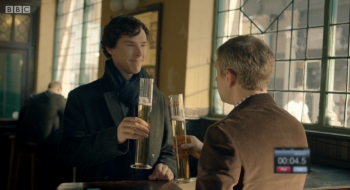
I have also just watched the latest Sherlock. If you live in the UK, the chances that you watched it as it was first broadcast are approximately one in seven. Despite the fact that this is a simultaneous British television watching event of the first order, the percentage of people who watched it is less than half what it was for peak television events of the 1960s to 1980s. That said, I want a set of those beer glasses. Oh Lord, I want a set of those beer glasses.
If you don’t live in the UK, torrents are appearing right now and you will be able to watch it shortly. If you live in China, you are able to watch it on the legal Youku Tudou streaming service right now. If you want to watch it legally in most other places, you will have to wait a few days to a few weeks. I suspect, though, that most of the people who really want to talk about it will have watched it by this time tomorrow. Versions with strange, semi-accurate hacked on subtitles will be out there any moment now. Then they will talk, and talk, and talk, in various languages and through various translation tools.
Things weren’t always thus. I am a middle aged expatriate Antipodean fogey. Watching film and television while growing up in Australia in the 1970s and 1980s in Australia was a strange thing. Inevitably, most of the movies we watched came from America, and most of the television we watched in Australia came from America. In America, television seasons start in October, run through the winter months, and then end in about April. The biggest blockbuster movies are released between May and July. In Australia, though, the summer movie season started on December 26, and the television season went from February to September. This means that movies that had been hits in the American summer would often be held over for more than six months, and television seasons that had started in October in the US would not commence showing in Australia until February of the following year.
Even by 1982 this had become tiresome with movies. I remember reading about a movie called “E.T.” that was supposed to be wonderful, and waiting endlessly. (I found it vaguely disappointing. Some of this might have been the wait). Even the existence of VHS was enough to break this down. By the 1990s, Hollywood had found that it was best to open movies as close as possible to simultaneously around the world as possible, both for reasons of piracy prevention, and because of the simple fact that publicity campaigns and other buzz could not be stopped from crossing borders.
Television was a little more odd, though. For one thing, there was less realisation that there was a problem. Television had certain peculiarities – for instance Christmas episodes of foreign series always aired in May – but this was no more peculiar than eating an enormous Christmas dinner of ham and turkey in 40 degree heat, or watching live major sporting events on TV in the middle of the night, as Australian sports fans are known to do on a weekly basis. In any event, local print media – mostly owned by the same companies that owned the television stations – would play ball, and there would be no discussion of new episodes of television series until the television series aired locally.
But of course, modernity (by which I mean the internet) eventually happened. It became trivially easy to watch any programme almost as soon as it was aired. Those people who wanted to talk about television with other people on the internet (in Australia and elsewhere) found it imperative to watch at the same time, and they did. And they do. (Okay, I admit it. And we did. And we do). Piracy of music and of first run movies seems to have declined, because the legal options for listening and watching at the same time everywhere are now pretty good. Piracy of programming from regular series television seems to have gone way up, though. Television networks around the world are getting closer to airing things on the same day, but they are still probably not good enough for people who want to watch the next day, without spoilers. (In Australia, the same old television networks are still rather tilting at windmills to stop piracy, even with the help of a US Ambassador who believes an important part of his job is to discourage Game of Thrones piracy). National television moments have declined, however it feels when watching Sherlock in the UK. Global television moments have grown spectacularly. The industry is yet to catch up by giving global audiences legal ways to achieve these moments.
Except that in China, piracy is feared to such an extent that the purveyors of legal streaming have actually chosen to give viewers what they want when they want. The rest of the world may follow soon. I hope so.
Also, with Sherlock being such a big hit in the manufacturing capital of the world, I will hopefully be able to order the beer glasses on ebay any moment now.
On a Tuesday evening shortly before Christmas, I arrived at London Gatwick Airport on an Easyjet flight from Morocco. I wanted to travel to my home in Southwark as quickly as possible. The quickest and simplest way to do this is to catch a train from Gatwick Airport railway station in the terminal to East Croydon and then London Bridge, followed by another train to South Bermondsey, the nearest station to my home. A single ticket for this journey costs £14.60, a fare I find to be a bit steep. Knowing the fare system reasonably well, I instead purchased a ticket to East Croydon, the first station inside Greater London at which the train stopped. For this, I paid £4.50. I then used my Oyster Card – the contactless ticketing system that Londoners use for most of their public transport journeys within London – to get to South Bermondsey. This was charged using the zone based fare system that applies within London, and cost me £2.20. I was thus able to reduce the cost of the journey by more than 50%.
This is not fare evasion. What I did is perfectly legal, and I can’t be punished for doing it, but surely it is against the spirit of the fare laws. The powers that be have decided that the wealthy plutocrats who can afford to fly Easyjet can also afford to pay £14.60 for a train journey from central London to the airport. By taking advantage of the cheaper fares available for shorter journeys, I am demonstrating my contempt for the wise decisions of these people. Let us call it fare avoidance. As it happened, a ticket inspector stopped me part of the way through the journey, and berated me for my lack of public spiritedness and civic responsibility, and just generally told me off for failing to spend money that rightly belonged to the families of good, honest people such as ticket inspectors. How would such people be able to feed their families if everyone behaved like this?
Actually, no he didn’t. What he actually said was “Thank you sir. That’s great”. It’s also possible he wished me a merry Christmas.
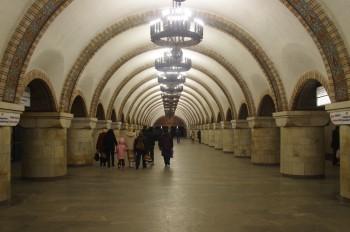 Kiev, Ukraine. January 2013 Kiev, Ukraine. January 2013
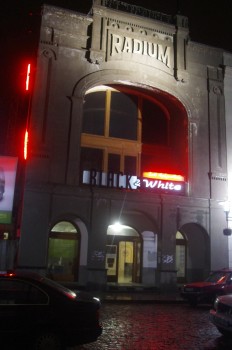 Kutaisi, Georgia. January 2013 Kutaisi, Georgia. January 2013
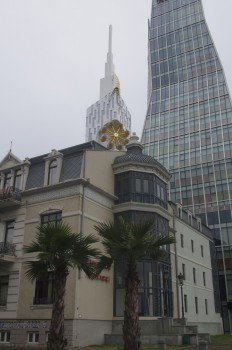 Batumi, Adjara. January 2013 Batumi, Adjara. January 2013
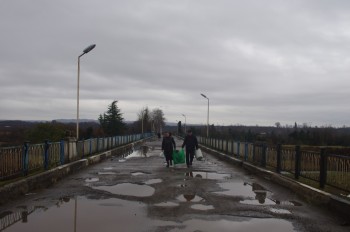 Inguri Bridge, January 2013 Inguri Bridge, January 2013
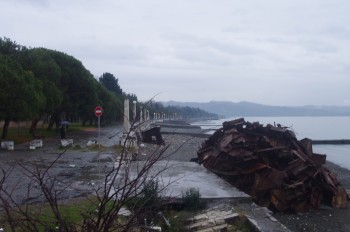 Sukhomi, Abkhazia. January 2013 Sukhomi, Abkhazia. January 2013
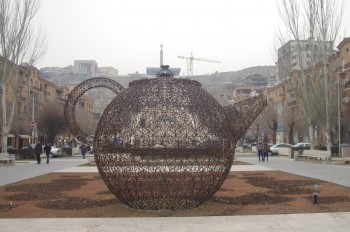 Yerevan, Armenia. February 2013 Yerevan, Armenia. February 2013
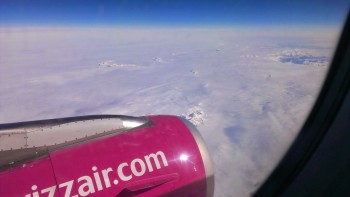 38,000 feet. February 2013 38,000 feet. February 2013
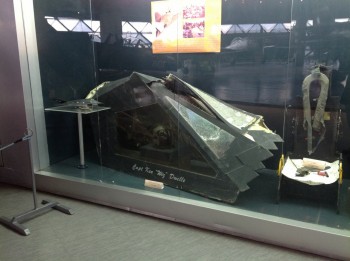 Belgrade, Serbia. February 2013 Belgrade, Serbia. February 2013
 Sarajevo, Federation of Bosnia and Herzegovina. March 2013 Sarajevo, Federation of Bosnia and Herzegovina. March 2013
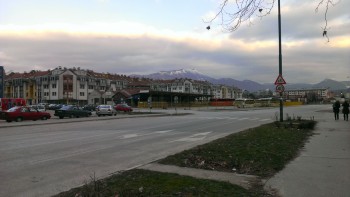 Istočno Sarajevo, Republic Srpska. March 2013 Istočno Sarajevo, Republic Srpska. March 2013
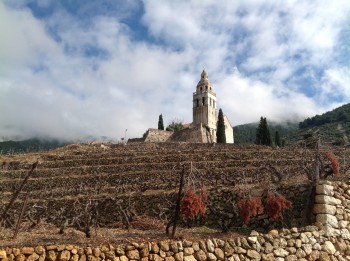 Vis Island, Croatia. March 2013 Vis Island, Croatia. March 2013
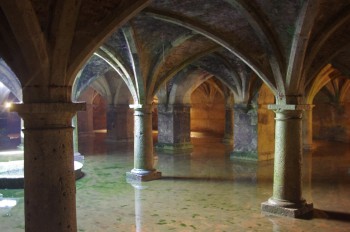 Al Jadida, Morocco. April 2013 Al Jadida, Morocco. April 2013
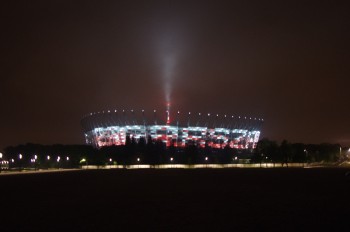 Warsaw, Poland. May 2013 Warsaw, Poland. May 2013
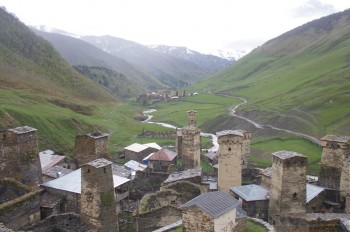 Ushguli, Georgia. May 2013 Ushguli, Georgia. May 2013
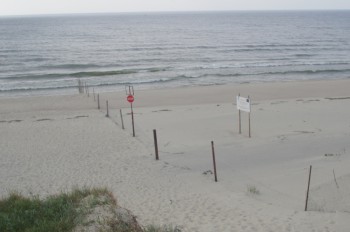 Nowa Carczma, Vistula Spit. June 2013 Nowa Carczma, Vistula Spit. June 2013
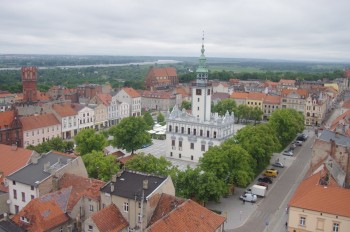 Chełmno, Poland. June 2013 Chełmno, Poland. June 2013
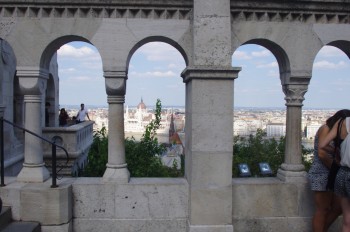 Budapest, Hungary. July 2013 Budapest, Hungary. July 2013
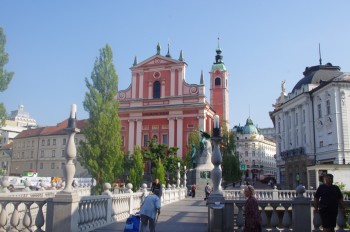 Ljubljana, Slovenia. July 2013 Ljubljana, Slovenia. July 2013
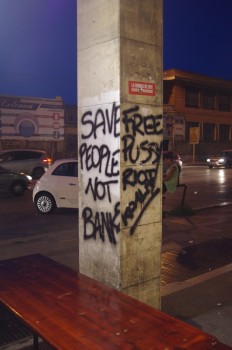 Bari, Italy. July 2013 Bari, Italy. July 2013
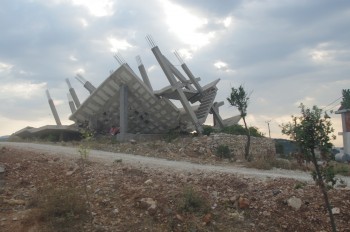 Ksamil, Albania. July 2013 Ksamil, Albania. July 2013
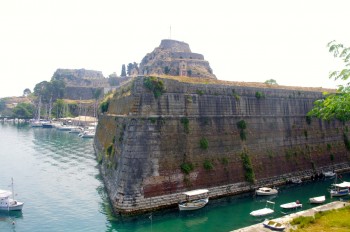 Kerkyra, Greece. July 2013 Kerkyra, Greece. July 2013
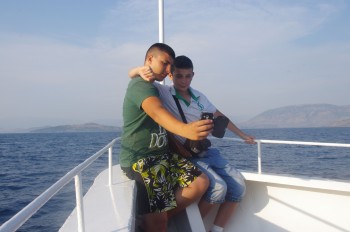 Corfu Channel. July 2013 Corfu Channel. July 2013
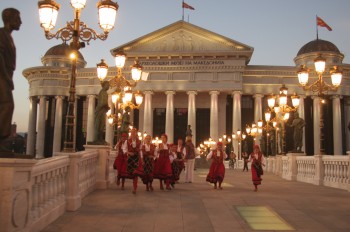 Skopje, Macedonia. July 2013 Skopje, Macedonia. July 2013
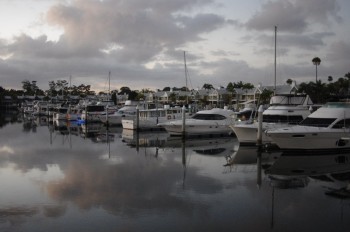 Sanctuary Cove, Australia. August 2013 Sanctuary Cove, Australia. August 2013
 Edinburgh, Scotland. September 2013 Edinburgh, Scotland. September 2013
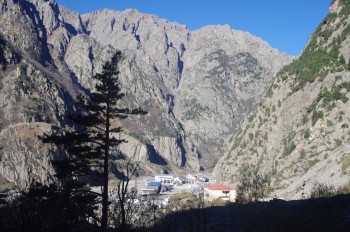 Darial Gorge. October 2013 Darial Gorge. October 2013
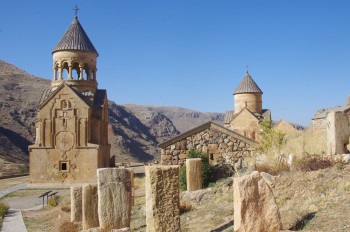 Noravank, Armenia. October 2013 Noravank, Armenia. October 2013
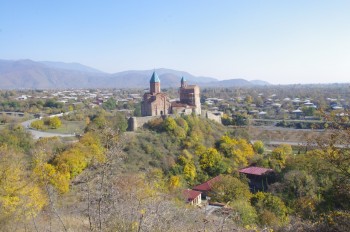 Gamla, Georgia. November 2013 Gamla, Georgia. November 2013
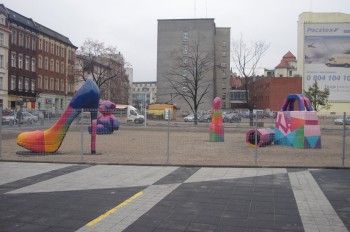 Katowice, Poland. November 2013 Katowice, Poland. November 2013
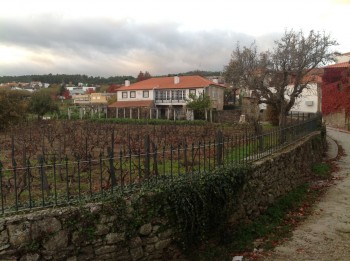 Sabrosa, Portugal. November 2013 Sabrosa, Portugal. November 2013
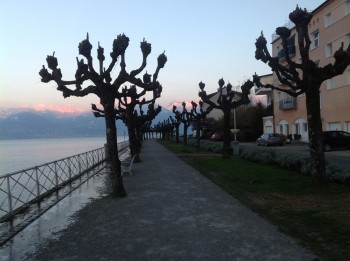 Saint-Gingolph, France. November 2013 Saint-Gingolph, France. November 2013
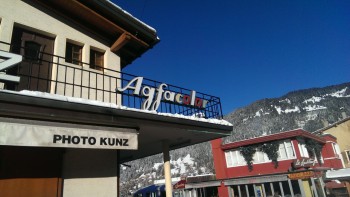 Villars, Switzerland. November 2013 Villars, Switzerland. November 2013
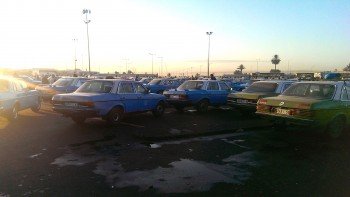
Inezgane, Morocco. December 2013
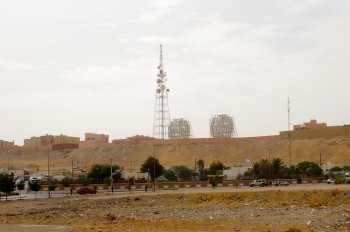 Laayoune, Western Sahara. December 2013 Laayoune, Western Sahara. December 2013
If you are lucky enough to be permitted to cross the border from Sinuiju in (totalitarian) North Korea to Dandong in (horribly repressive, but at least they have food) China, one of the first things you will see is this.
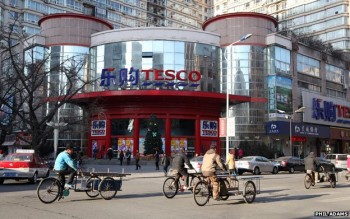 God bless Tesco. God bless Tesco.
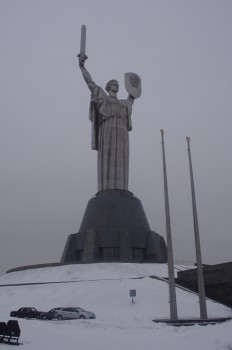 Kiev, Ukraine. January 2013. Kiev, Ukraine. January 2013.
This rather extraordinarily monumental statue stands on top of (and forms part of) the Museum of the Great Patriotic War in Kiev, Ukraine. The monument is officially named “The Mother of the Fatherland” but (perhaps curiously) is more commonly referred to as “The Mother of the Motherland”, and (perhaps less curiously) is sometimes referred to colloquially as “Tin Tits”. The museum commemorates the Soviet victory of the Nazis in World War 2. Although people in most countries of the USSR have rather ambiguous (at best) feelings about their Soviet past, the victory over the Nazis is quite reasonably seen as a good thing, and memorials to the war are still generally looked after and treated with respect. The statue itself is 62 metres tall. Including the base and building it stands on, the statue is over 100 metres above the ground, making it one of the largest statues in the world.
The statue sits upon a high hill overlooking the Dnieper River from its right bank, towards Kiev’s endless Soviet era suburbs on the other side of the river.
Enormous as this statue is, it is actually less grandiose than an earlier proposal. In the 1950s, there were proposals to built twin statues of Lenin and Stalin side by side, each approximately 200 metres tall – each significantly higher than the Washington Monument. Thinking about this in the past, I have thought that these statues would have been unspeakable abominations, and that the Ukrainian people were extraordinarily lucky to merely have the current, modest structure instead of this.
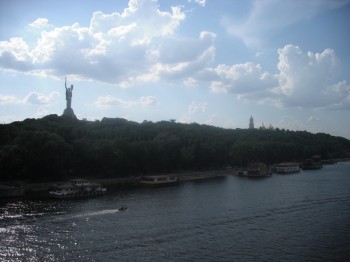 Kiev, Ukraine. June 2009. Kiev, Ukraine. June 2009.
This evening, though, I am not so sure. Well, not entirely. Sure, they still would have been unspeakable abominations, but what a fine day today could have been had they been there. Imagine these gigantic statues of these evil men being pulled down, and the immense splash that they would have made as they fell from the top of the hill into the Dnieper, causing tsunami all the way to Dnipropetrovsk.
That would have been awesome.

In August, I spent some time in my native land of Australia visiting family and friends. One Sunday morning I found myself wandering around the inner west of Sydney. I used to live in the area. If certain things in my life had gone slightly differently, I might still live in the area.
That’s life, though. I don’t regret moving to London in 2002. For one thing, if I had not done so, I might not now be writing for this blog.
In any event, I was thirsty. I nipped into a convenience store to buy a Coke. Anyone who has ever lived in a city will know the type of store. A selection groceries for people who have not managed to get to the supermarket. Drinks. Snack foods. Possibly a few pots and pans and other household goods. Cigarettes. In cities full of immigrants such as London and Sydney, these stores are normally owned and run by first generation immigrants. In the UK, this often means south Asians. In Australia, the owners of such shops are more often Chinese people, in some sense. (Often this can mean ethnically Chinese immigrants from Malaysia, Vietnam, or various other places).
People reading carefully may thing I am being careless in leaving alcoholic drinks and newspapers out of the list of things that such stores sell. After all, in London these things would make up a large portion of the business of such a store. Surely this is the same in Australia?
Well, no, actually. Australian convenience stores do have vast amounts of shelf space devoted to sunscreen and insect repellant, but this hardly makes up for it.
Australia loves to regulate to protect vested interests. Laws vary according to state, but in Sydney an area will have a single newsagent, which will have a monopoly over the sale of newspapers in that area. This newsagent will be free to sub-licence other stores in the area to sell newspapers, but this normally only happens for Sunday papers, as the owner of the local monopoly will (or at least might) take the day off. In theory, the holder of the newsagent monopoly guarantees that he will provide local delivery of newspapers in the morning in return for being granted this monopoly. This may have once made sense, although I doubt it. Now though, most people who read newspapers at home do so over the internet. The monopoly remains, though. It’s about vested interests being protected from competition. This means, amongst other things, that convenience stores run by recent immigrants are not going to be allowed to sell newspapers.
→ Continue reading: Loving the Aussies slightly less
Young, ambitious, Chinese officials are being required to read Tom Friedman if they want to get ahead.
I knew the Chinese government was cruel, but until now I had no idea just how cruel.
|
Who Are We? The Samizdata people are a bunch of sinister and heavily armed globalist illuminati who seek to infect the entire world with the values of personal liberty and several property. Amongst our many crimes is a sense of humour and the intermittent use of British spelling.
We are also a varied group made up of social individualists, classical liberals, whigs, libertarians, extropians, futurists, ‘Porcupines’, Karl Popper fetishists, recovering neo-conservatives, crazed Ayn Rand worshipers, over-caffeinated Virginia Postrel devotees, witty Frédéric Bastiat wannabes, cypherpunks, minarchists, kritarchists and wild-eyed anarcho-capitalists from Britain, North America, Australia and Europe.
|



























 Corfu Channel. July 2013
Corfu Channel. July 2013


















